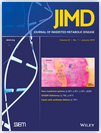 Phosphoglycerate kinase (PGK) deficiency is a rare X-linked metabolic disorder caused by mutations in the PGK1 gene. Patients usually develop various combinations of non-spherocytic hemolytic anemia (NSHA), myopathy, and central nervous system disorders.
Phosphoglycerate kinase (PGK) deficiency is a rare X-linked metabolic disorder caused by mutations in the PGK1 gene. Patients usually develop various combinations of non-spherocytic hemolytic anemia (NSHA), myopathy, and central nervous system disorders.
In this national multicenter observational retrospective study, the French clinicians recorded all known French patients with PGK deficiency, and 3 unrelated patients were identified.
Case 1 was a 32-year-old patient with severe chronic axonal sensorimotor polyneuropathy resembling Charcot-Marie-Tooth (CMT) disease, mental retardation, microcephaly, ophthalmoplegia, pes cavus, and the new c.323G>A PGK1 hemizygous mutation. Case 2 was a 71-year-old patient with recurrent exertional rhabdomyolysis, and a c.943G>A PGK1 hemizygous mutation. Case 3 was a 48-year-old patient with NSHA, retinitis pigmentosa, mental retardation, seizures, stroke, parkinsonism and a c.491A>T PGK1 hemizygous mutation.
This study confirms that PGK deficiency is an extremely rare disorder with a wide phenotypic spectrum, and demonstrates for the first time that PGK deficiency may affect peripheral nervous system and present as a CMT-like disorder.
